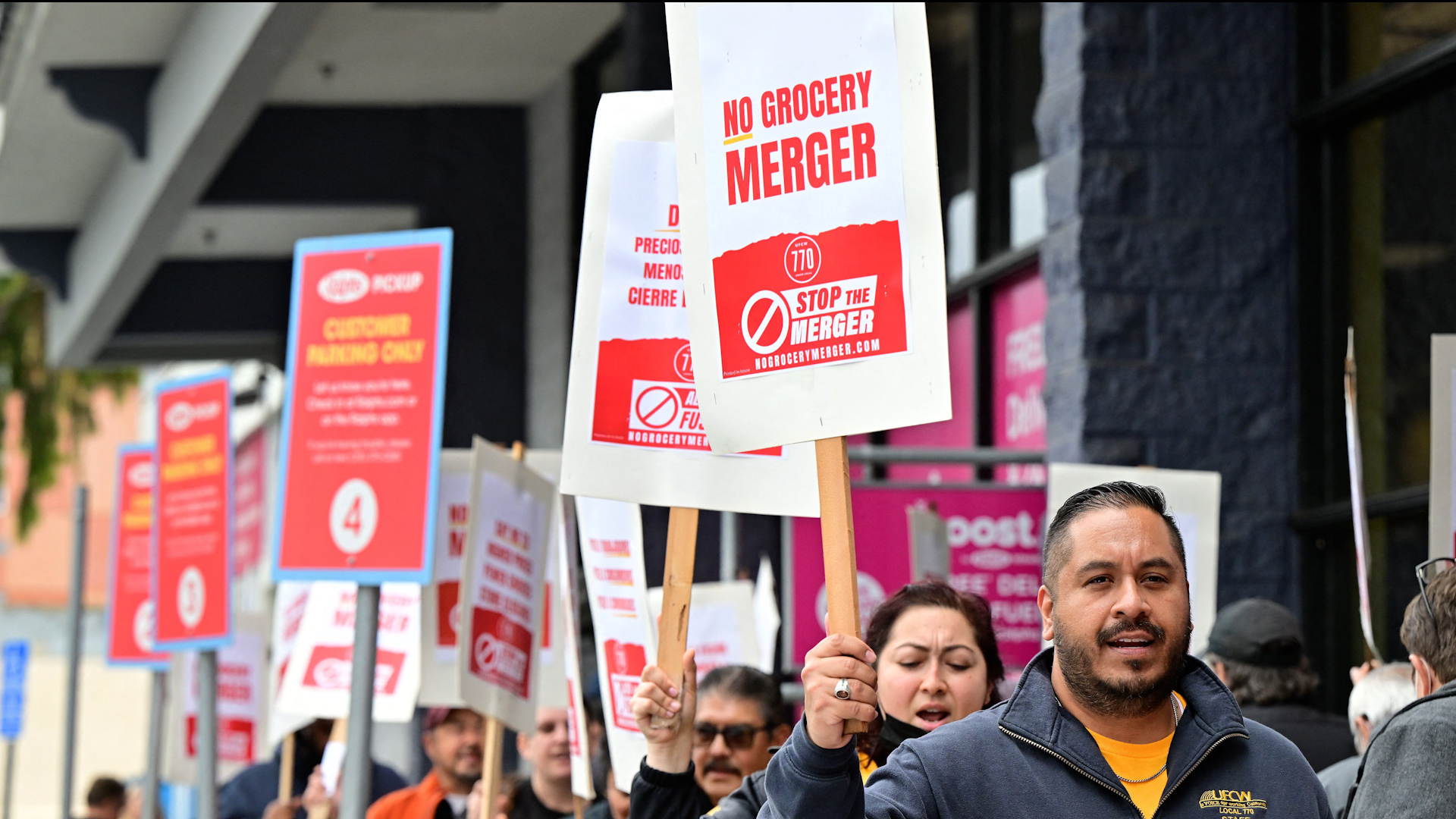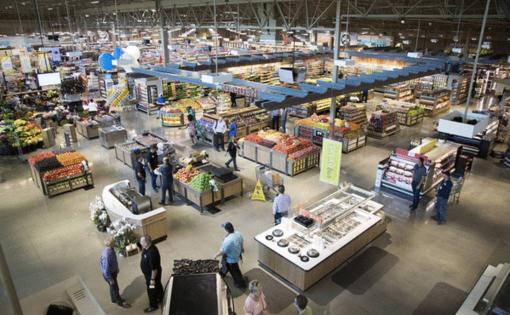Both Kroger and Albertsons intended to proceed with share repurchases to raise their stock values and compensate investors within a day of their $25 billion merger’s legal collapse.
The two biggest grocery store owners in America had contended that by banding together, they would be better equipped to cut prices for customers. They said that doing so would increase their bargaining power with suppliers and make it simpler for them to take on larger supermarket stores like Walmart, Costco, and Amazon.
In a lawsuit opposing the merger, the Federal Trade Commission said that the acquisition threatened to lower workers’ pay and bargaining strength, lessen industry competition, and perhaps raise food prices. The Biden administration disagreed.
It is hard to tell if any of it would have occurred now that the sale has fallen through. However, in her ruling on Tuesday, U.S. District Judge Adrienne Nelson of Oregon expressed caution, stating that the companies’ pledges to invest in reduced pricing were “neither merger-specific nor verifiable, so there is no guarantee” that consumers would profit.

“The Court must give limited weight to a non-binding promise made during these proceedings, and the promise to make a price investment is not legally binding,” she stated. On Tuesday, a Seattle Superior Court judge upheld Nelson’s decision and ordered an injunction against the merger.
Albertsons ended the agreement and filed a lawsuit against Kroger on Wednesday, claiming the former partner had not gone far enough to gain regulatory approval.
The drama started at the same time as the federal government announced new November inflation statistics that showed supermarket prices were still rising somewhat.
After rising by 0.1% from September to October, the cost of food consumed at home increased by 1.6% last month compared to the same period last year. This was a slower increase than the 2.7% annual inflation rate overall, but it was an acceleration of 0.5% from the previous month.
Food prices are always erratic, but Thursday’s wholesale inflation data was hotter than anticipated and showed rises for a wide variety of goods, from fruit to chicken.
Kroger reaffirmed its “commitment to lower prices” on Wednesday, claiming that company had spent billions on cost-cutting measures over the last 20 years. The company also disclosed that it had invested up to $3.8 billion annually in store upgrades and $2.4 billion in pay increases since 2018. Likewise, Albertsons pledged to continue concentrating on “improving our value proposition with customers.”

Albertsons declined to comment more, and neither business provided any information regarding their efforts to reduce prices. With “competitive pricing, loyalty discounts, personalized offers, fuel rewards, and a unique private label portfolio,” Kroger merely stated that it gives value to its consumers.
Both supermarket chains also announced this week that they will be investing billions of dollars in initiatives that will increase shareholder value.
After a more than two-year delay, Kroger said that it will repurchase $7.5 billion worth of its shares, of which $5 billion would be repurchased in an expedited manner.
This is the same amount that Kroger calculated on Wednesday it had spent on price reductions over the previous 21 years. Albertsons said that it will raise the dividend it pays to stockholders by 25% and buyback $2 billion worth of shares.
All investors profit from stock repurchases, which lower the quantity of shares available and increase the value of the remaining shares, while those with the largest stakes gain the most from dividend payments. Large Wall Street corporations with the financial clout to purchase and hold millions of shares of publicly listed companies are usually among the top shareholders.
The biggest investors in Albertsons are the Vanguard Group, the nation’s biggest mutual fund provider, and BlackRock, the largest asset manager in the world, with more than $11.5 trillion.
The largest holders of Kroger stock are the Wall Street investment firms Cerberus Capital Management, Vanguard, BlackRock, and the Berkshire Hathaway conglomerate, owned by billionaire investor Warren Buffett.
There was much expectation that the combination would result in growth for both of these businesses. Neil Saunders, managing director of the retail consulting firm GlobalData, stated, “Those things aren’t happening right now.” According to him, repurchasing shares might help investors feel more “optimistic” by ensuring them that “we’ll generate good returns for you.”
Since Wednesday, Kroger’s stock has increased by almost 3%, and by late Thursday, Albertsons had recovered almost all of its losses from the decision.
Meanwhile, labor activists and consumer advocacy groups are celebrating the halted merger as a win for workers and consumers and as a success for the antitrust actions of the Biden administration in its last weeks in office.
Seth Harris, a law and policy professor at Northeastern University and a former top labor adviser in the Biden White House, said the judges in the case “rightly saw the merger as a huge threat to the jobs and benefits of thousands of their members working for those chains and the communities in which they live.”
“Combining two of the four largest food retailers would have also reduced consumer choice, leading to fewer alternatives to low-quality, ultra-processed foods,” said Thomas Gremillion, director of food policy at the Consumer Federation of America.
In reference to President-elect Donald Trump’s appointment of Andrew Ferguson to succeed Lina Khan as head of the FTC, Gremillion stated, “Unfortunately, the Trump administration seems unlikely to build on this important step towards restoring competition in food retail.” According to him, that indicates that “Big Food will only be getting bigger over the next four years.”
During a September campaign event in a Kittanning, Pennsylvania, grocery store, Trump attacked the Biden-Harris administration for raising prices on everything from ground beef to eggs and cereal. He declared, “Bacon is through the roof.”
At the New York Stock Exchange on Thursday, Trump made a pledge that energy specialists have regarded with skepticism: expanding oil and natural gas exploration will help reduce inflation, particularly food costs.
However, he stated of groceries in a Time magazine story that was released on Thursday: “Once things are up, it’s difficult to bring them down.” You know, it’s very difficult.





